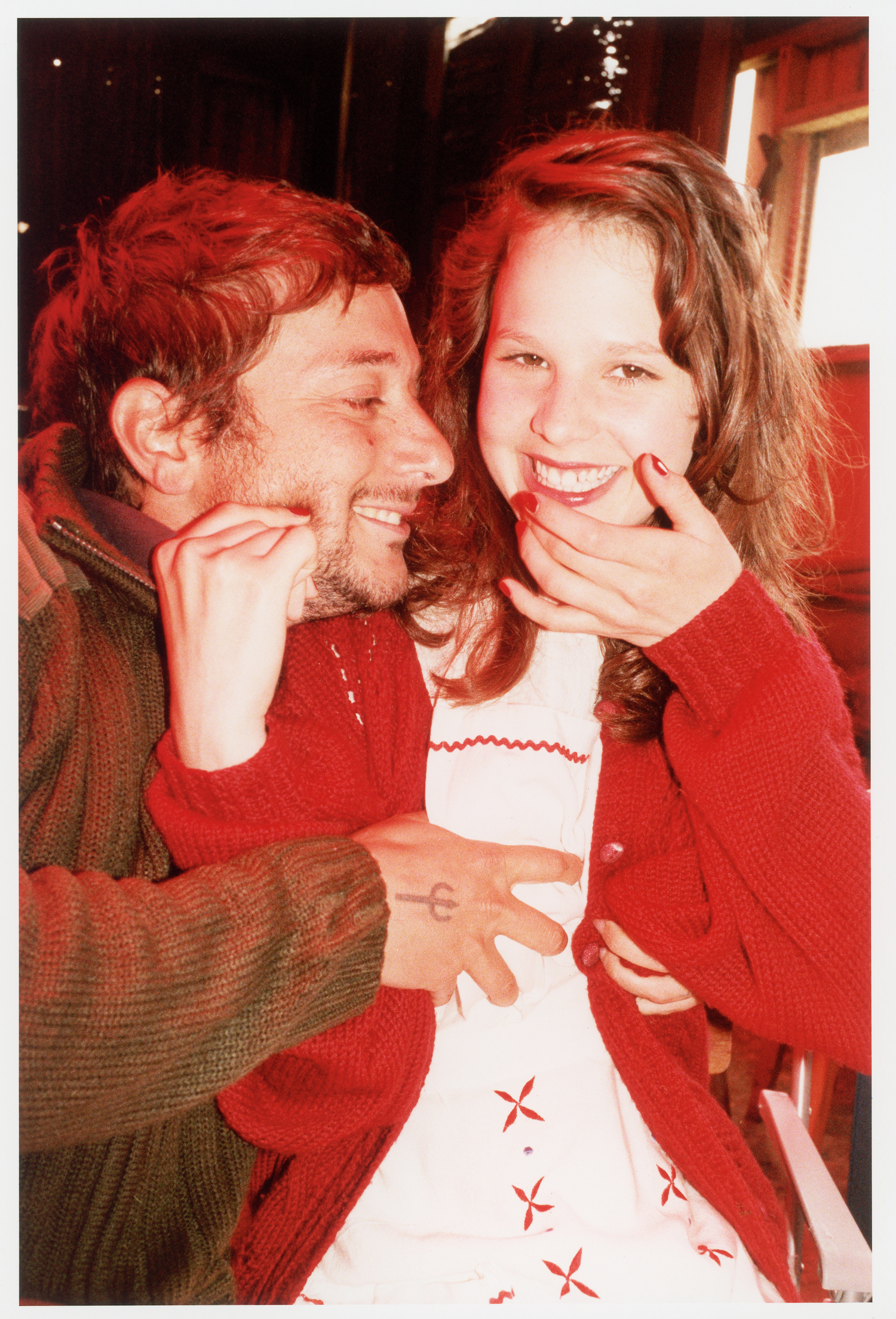Purple Magazine
— F/W 2007 issue 8
Harmony Korine
 HARMONY KORINE and RACHEL KORINE as Little Red Riding Hood
HARMONY KORINE and RACHEL KORINE as Little Red Riding Hood
interview OLIVIER ZAHM
portraits JUERGEN TELLER
Harmony Korine is back, his demons conquered, his humor intact. His latest film, Mr. Lonely, is a masterpiece, the summum opus of his career to date, a synthesis of his trademark imagery and his profound questioning of the current status of film. Through the loving portrayal of old-world icons – Charlie Chaplin, Marilyn Monroe, Michael Jackson, among others – he contrasts a present driven by novelty alone, suggesting that the disappearance of celebrities parallels our loss of artistic community. And still he longs to hear the music of the golden-scaled fish…
OLIVIER ZAHM — It’s good to see you again, Harmony. We’ve all been waiting for your return to film. We missed your voice, which many consider the voice of your generation. Maybe that’s too great a…